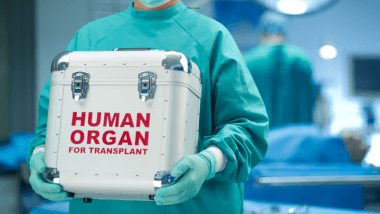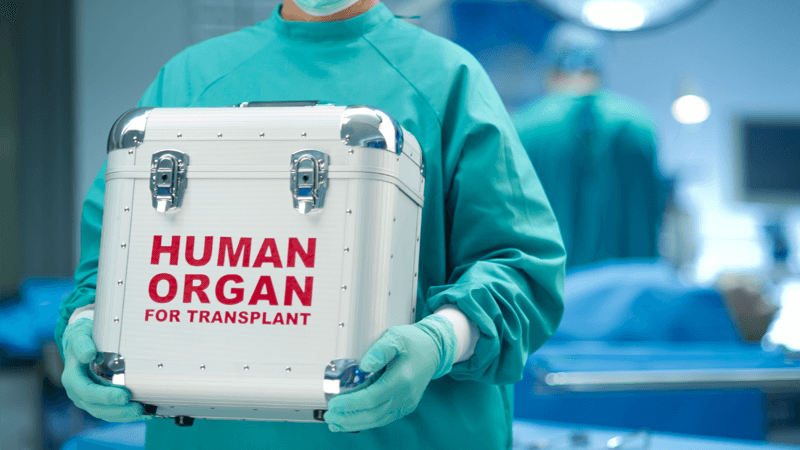A new ‘presumed consent’ system for organ donation has come into force in England after Parliament approved the legislation last year.
Previously, people were required to opt in if they wanted to donate their organs after they died. But this has now been replaced by a system where adults will be automatically registered as donors unless they explicitly opt out.
It follows similar legislation introduced in Wales in 2015, while Scotland plans to introduce its own presumed consent system in March 2021.
Family consultation
Anyone who has not opted out will be deemed to have given consent under England’s new law, although relatives of the deceased will still be asked for their opinion.
The new law says that children under 18, those who have lived in England for less than a year and those deemed to have “lacked capacity for a significant time” will be excluded from the scheme.
Ministers claim the new law will lead to a rise in transplants, but critics say merely changing the law won’t solve the problem.
Health Minister Lord Bethell said that the legislation may not come into practice immediately due to the coronavirus pandemic.
Fewer transplants
In March, an ethics professor said that changing the law on organ donation to a ‘presumed consent’ system will not increase the number of transplants.
Professor David Albert Jones, Director of the Anscombe Bioethics Centre, believes that automatically registering people to become organ donors could actually see a drop in transplant rates as people instead choose to opt out.
He highlighted that while the aim is to raise the number of donations, transplant rates initially went down in Wales after presumed consent was introduced, during a period when rates increased in Scotland and England.
Professor Jones said: “Transplant rates continue to fluctuate from year to year but there is no evidence that significantly more transplants have occurred in Wales because of the law”.

Columnist: Encourage organ donation, but don’t use law to force people


